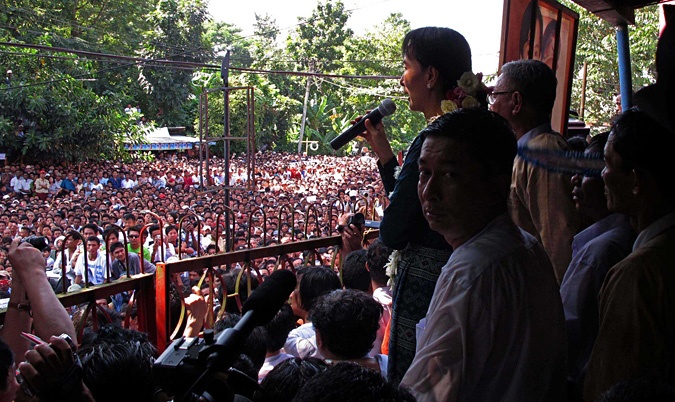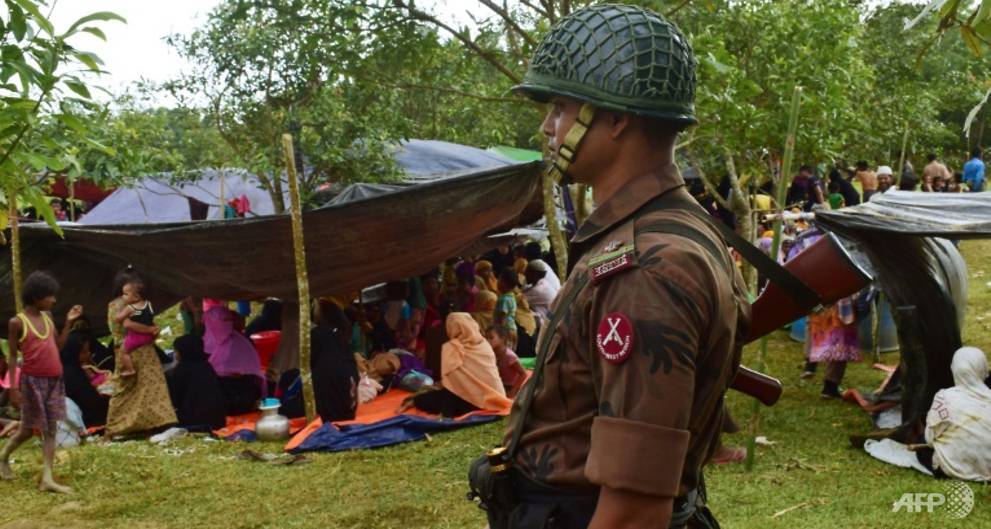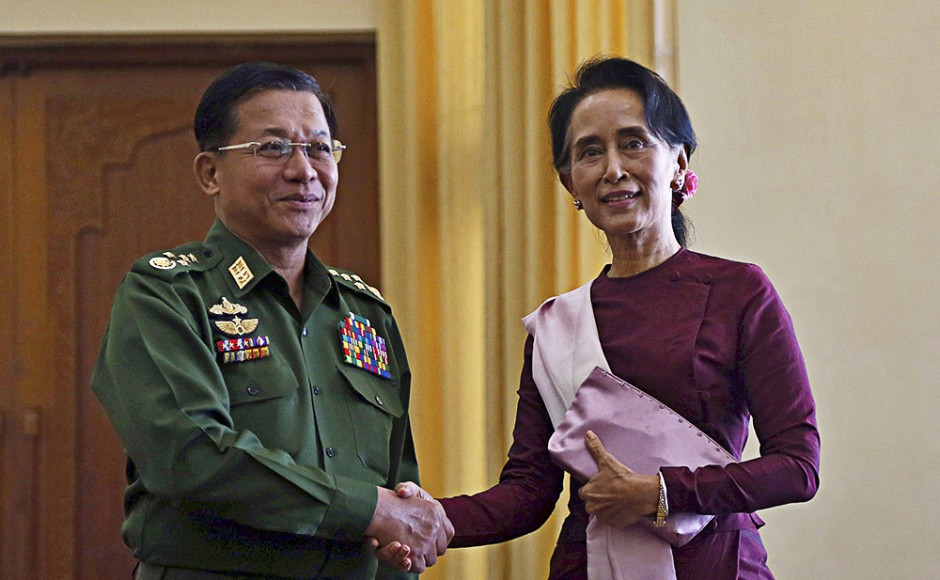Is Aung Sun Suu Kyi still held captive by her government?
Published: 2017-09-19 16:53
Last Updated: 2024-04-15 13:14
Myanmar's de facto leader Aung Sun Suu Kyi has been facing international criticism for her government's silence over the Rohingya crisis, which UN agencies describe as 'ethnic cleansing'.
Some critics are advocating for repealing Suu Kyi's Nobel Prize, including fellow Nobel laureate Malala Youzsefi, as well as others such as Canadian activists wishing to revoke her honorary Canadian citizenship.
However, perhaps Aung Sun Suu Kyi should be given the benefit of the doubt. Here's why:
1. Aung Sun Suu Kyi is an advocate for Myanmar's democratization.
Suu Kyi's efforts, which earned her the Nobel Peace Prize, essentially come from nearly two decades of advocating for the democratization of Myanmar, and ending its junta rule.
Since the late 80s, she has been giving charismatic speeches while under house arrest, gaining widespread political support as she calls for the junta government to transition its hold in power to the people.
In 1991, her National League of Democracy party won the elections. She was unable to act as Myanmar's leader until she won the elections again in 2015, with international pressure forcing the junta government to transfer its power to the democratically elected party.

2. Myanmar effectively has two governments.
Suu Kyi's winning of the elections was halted by awkward constitutional ammendments. Although the junta government agreed to transfer power to her winning political party, a constitutional ammendment prevents her from becoming President of the country.
Suu Kyi's official tital makes her the State Counselor, with de facto executive power but no constitutionally provided basis to act in full effect as leader of the country.
In fact, Al Jazeera interviewed Paul Donowitz from EarthRights International, a human rights organization based in Washington D.C., to provide further context.
According to Donowits, Burmese military assume an "outsider's rule" in politics, the economy and society. Myanmar's constitution guarantees the military 25% of weighted votes, as well as veto rule to any ammendments made. The military also controls major sectors in Myanmar's economy.
"By virtue of this special status, the military remains outside of civilian control. The civilian government cannot hold the military government accountable for any actions or abuses it commits against ethnic people, including the self-identified Rohingya," states Donowitz.
This means that Myanmar is composed of two governments: the junta military government which has given power to Suu Kyi and her civilian government.
Moreover, the civilian government is incapable of holding the military government accountable. This is crucial because -
3. The party responsible for Myanmar's ethnic cleansing is the military government.
News sources seems to unanimously agree that the parties responsible for the ethnic cleansing of the Rohingya, which includes planting land mines, burning down villages, indiscriminant killing of women and children, happens at the hands of the Burmes army.
However, it is also evident that when sources state that "government forces" crackdown on the Rohingya, they do not specify that Myanmar does indeed have two governments, and the one responsible for crackdowns is the junta military.
This is not to state that civilians do not contribute to the violence, nor is it to state that Suu Kyi's civilian government cannot be accountable for the crisis.
Whereas a military government conventionally protects civilians from outside attacks, the civilian government provides services and protection to its citizens.
This means that Suu Kyi's government fails on the account of recognizing the Rohingya as Burmese citizens, by refusing to issue passports, national identification, voting rights, or provision of social services.
Moreover, Suu Kyi fails in controlling civilian violence against the Rohingya, as extremist members of the Buddhist-majority population contribute to systematic targeting of the Muslim minority.

4. Aung Sun Suu Kyi has an incentive to maintain a stable relationship with the military.
Although the military has relinquished some of its power to the civilian government, it still maintains a highly influential position in Myanmar.
On one account, the junta military maintains the aformentioned constitutional powers, allowing them to influence formation of civilian government policy.
On another, the military maintains Burma's supply of weaponry. This would mean that assuming Suu Kyi's government intends to pressure the military into conforming to international human rights standards, the military can only do so by joice.
Myanmar's junta rule may be less prominent since her rise to power between the 90s and 2015, but tensions between the junta and civilian governments can be devastating.
5. Could Aung Sun Suu Kyi be attempting to prevent a civil war?
An open-ended question, but could very well explain the reason behind the civilian government's silence over ethnic cleansing of the Rohingya.
It may be sheer hypocrisy that Suu Kyi does not uphold the same principles she fought for the Burmese population with respect the Muslim minority. However, it is as likely that Suu Kyi is incapable of confronting the military in order not to jeopordize Myanmar's status as a transitioning state to democracy.

Suu Kyi's silence, therefore, may not be out of indifference. Rather, the civilian government's silence could be a testament to Myanmar's fragile stability, as a result of two competing governments.

